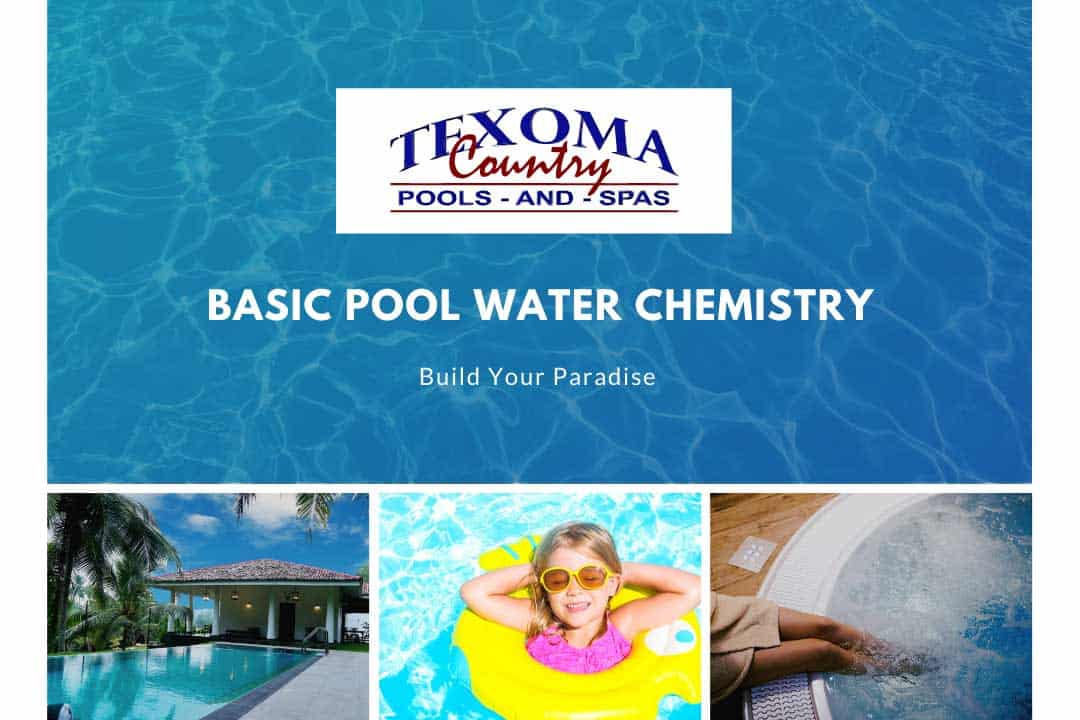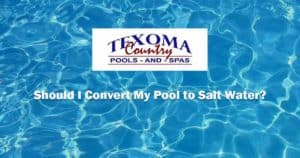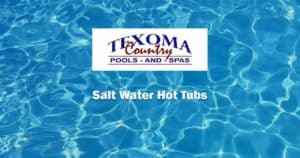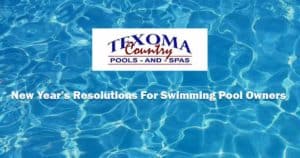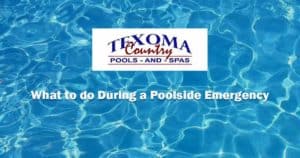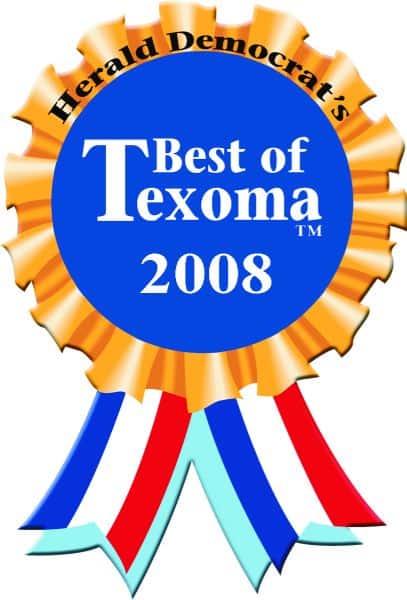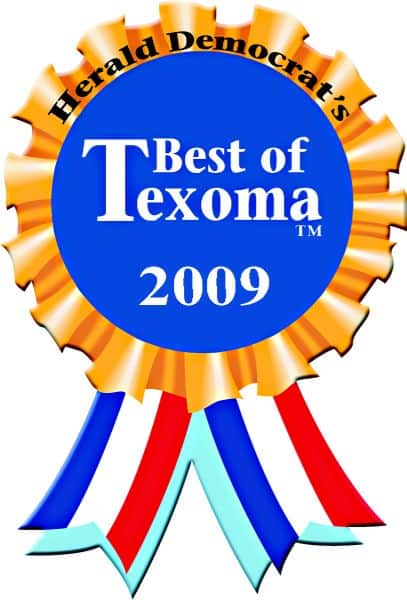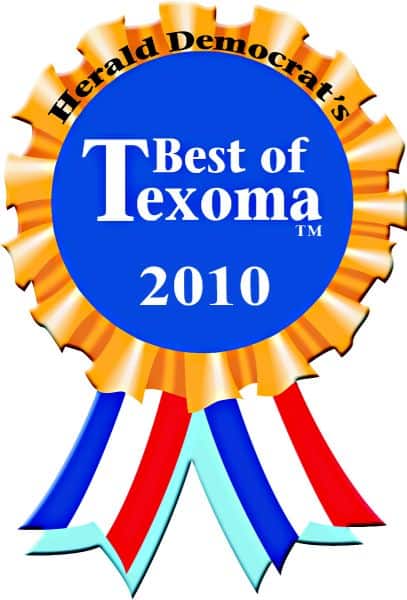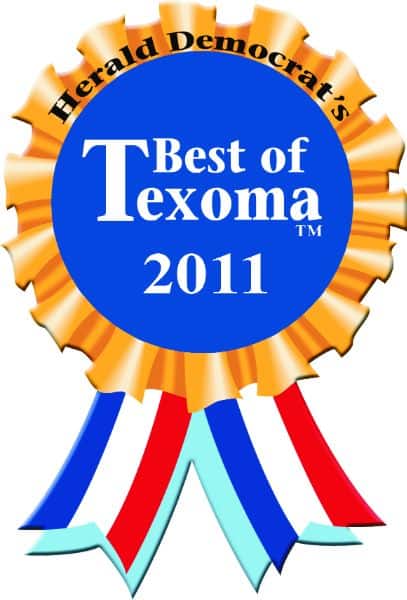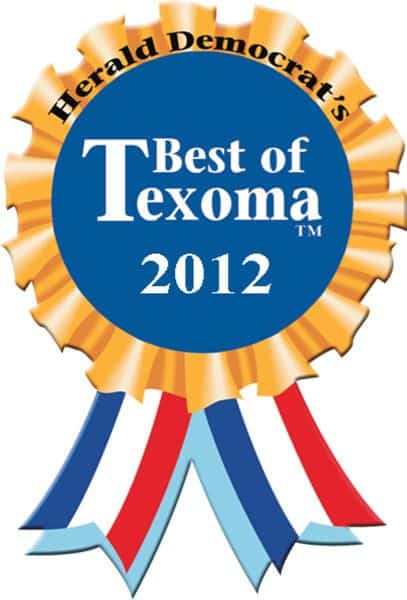Basic Pool Water Chemistry
Understanding basic pool water chemistry will help you keep your swimming pool safe for swimmers, reduces the amount of chlorine used, is the least corrosive to the equipment and pool shell, and is the cheapest way to own a pool.
Unbalanced water is expensive to balance, especially if algae have gotten out of control. If algae can grow easily, so can harmful bacteria.
The water in the Texoma area is naturally high in pH, for that reason we recommend the water be checked at least twice a week when the water is above 50° until the homeowner becomes more comfortable with the personality of the pool.
Algae does not grow when water is below 50°, while chlorine levels are not necessary to maintain in winter, keeping the rest balanced will preserve the equipment and pool shell.
Various test kits are available to help maintain basic pool water chemistry as well as testing stations in our pool store.
For beginners, we recommend bringing water to our test station and getting dosing recommendations from our trained staff until enough test reports have built up to help with dosing on your own, once you begin testing the water yourself.
| Free Chlorine | |||
|---|---|---|---|
| Range | 0 – 1 | 2 – 4 | 5 – 10 |
| Effects | Algae & bacteria grow Water unsafe | Eliminates bacteria & algae | Dry skin Faded suits Red eyes |
| What to Add to Adjust | Chlorine – tabs or shock | Fresh water or time |
Chlorine levels should be maintained when the water temperature gets above 50°. Depending on the weather, that can start as early as the end of February until the end of October.
If your swimming pool uses a different kind of sanitizer, check the owner’s manual for ideal levels and what is needed to adjust them.
| pH | |||
|---|---|---|---|
| Range | 6.0 – 7.2 | 7.4 – 7.6 | 7.8 – 8.5 |
| Effects | Scale attaches to surfaces Metals corrode Plaster etches Walls stain Chlorine depletes rapidly | Chlorine most effective Water is least corrosive Mineral to stay in solution | Chlorine ineffective Minerals solidify Water cloudy |
| What to Add to Adjust | Soda Ash or Sodium BiCarbonate | Muriatic Acid |
Swimming Pools with salt systems will have to add extra acid to balance the pH. The chlorine compound that these systems add to the water has a pH of 11. As it chlorinates it is also raising the pH of the water.
Alkalinity and pH work with each other, with the same chemicals being used to adjust each of them.
When needed, acid should be added in small doses so that the alkalinity is not affected dramatically. However, if both the pH and the alkalinity are high, a larger amount of acid can be added at one time.
| Alkalinity | |||
|---|---|---|---|
| Range | 60 – 70 | 80 – 120 | 130 – 180 |
| Effects | pH varies wildly | Keeps pH stable | pH hard to adjust |
| What to Add to Adjust | Soda Ash or Sodium BiCarbonate | Muriatic Acid |
Alkalinity and pH can be affected by rainfall. After a rainstorm, it is a good idea to test the water to see if it needs to be rebalanced.
| Stabilizer | |||
|---|---|---|---|
| Range | 10 – 20 | 30 – 50 (Chlorine Tab Pools) 60 – 80 (Salt Pools) | 90 – 150 |
| Effects | Chlorine dissipates rapidly | Allows water to hold chlorine so that it can be used | Chlorine is blocked, water cloudy |
| What to Add to Adjust | Cyarunic Acid | Add fresh water |
Chlorine is used by algae, debris, bacteria, and the sun. The stabilizer keeps the sun from using chlorine. Indoor swimming pools do not need as much.
The stabilizer does not deplete like chlorine, it may only need to be added one to two times a year.
Effects
| Total Hardness | |||
|---|---|---|---|
| Range | 150 | 200 – 400 | 1000 |
| Water pulls calcium from plaster | Water is the least corrosive | Scale attached to pool and equipment surfaces Water cloudy Irritates eyes | |
| What to Add to Adjust | Calcium Chloride | Fresh Water |
Total Hardiness measures calcium, sodium, and magnesium.
Water that is not in the ideal range seeks to fill voids with the easiest sources, like the calcium in plaster walls or metals from screws and ladders.
Understanding and learning these basic pool water chemistry facts will help you maintain and have a perfectly clear swimming pool year after year.

